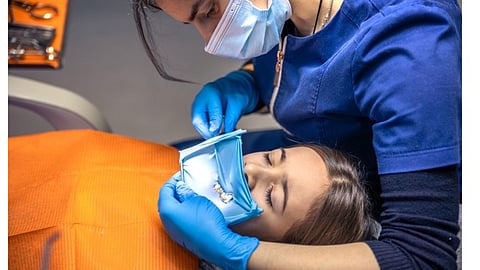By Lisa
Once you have had oral surgery, you may ask yourself in front of the mirror why your face is so swollen. You are not alone, as after surgery, inflammation may come as a surprise and even frighten those who cannot predict this phenomenon.
The upside? It is quite natural.
It belongs to the recovery process of your body, as you have undergone a surgical procedure for the cavity problem, including wisdom tooth removal or dental implantation. Therefore, it is anticipated that some swelling and discomfort will result from the surgery. As the swelling is expected to reach its maximum between 48 and 72 hours after the operation, it will naturally begin to subside.
Being informed about the norm and knowing how to cope with it can make your recovery carefree and painless. Here, we will discuss the reasons for its occurrence, the duration of its persistence, and provide easy dental surgery recovery tips to help you recover quickly.


